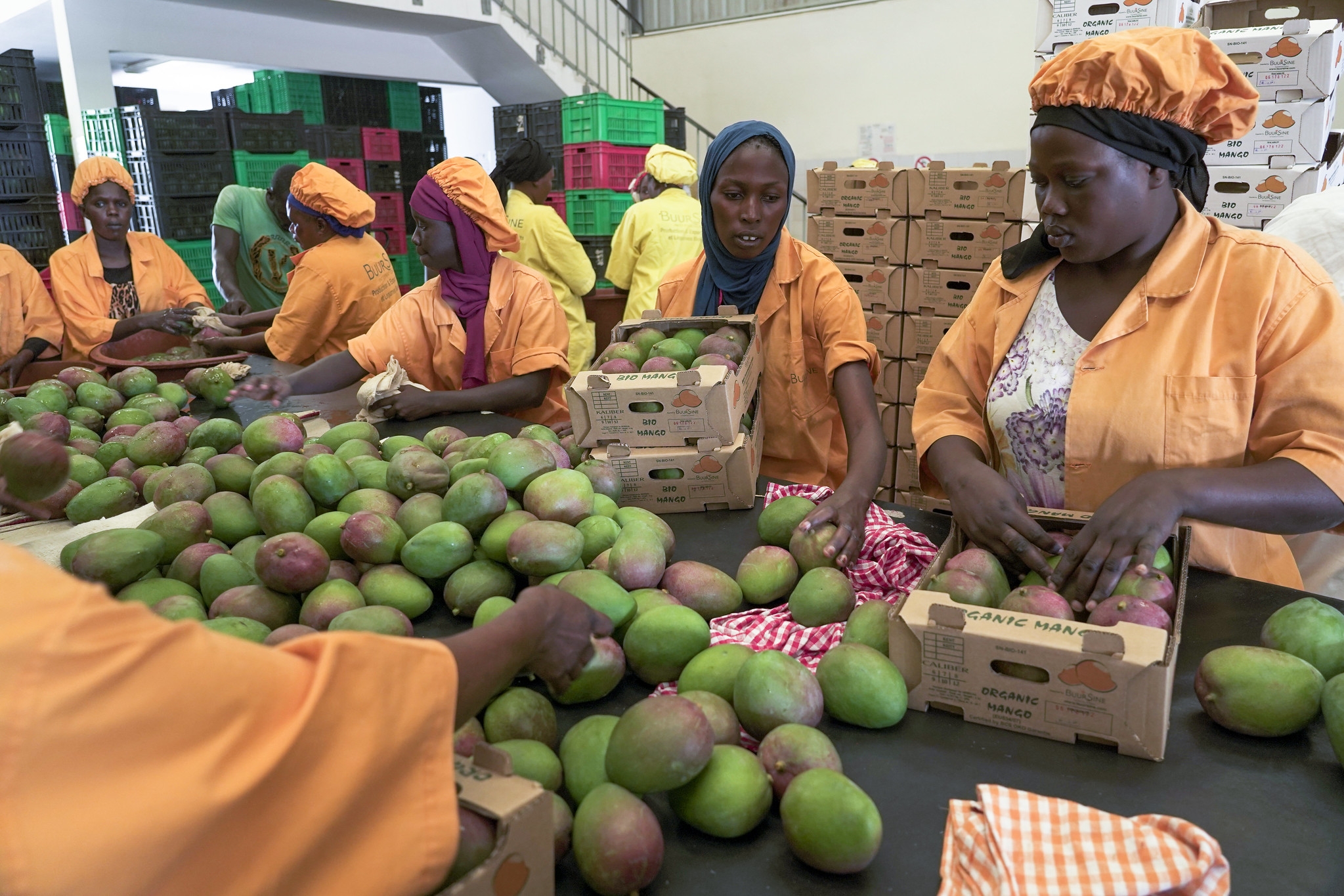
STDF supported this project to strengthen food safety outcomes in Mali and Senegal by piloting the use of Codex guidelines on voluntary third-party assurance (vTPA) programmes. The project explored how competent authorities could harness vTPA data to strengthen food safety outcomes, safeguard consumers and foster fair trade practices through enhanced public-private collaboration.
In parallel, the project also assessed national capacity and infrastructure gaps that could hinder the effective use of vTPA programmes and identified practical solutions to support long-term improvements.
Food business operators are responsible for the safety of their products and must demonstrate to competent authorities that they have effective controls in place to protect consumers and ensure fair practices. Many operators voluntarily adopt quality management systems, including third-party voluntary assurance programmes (vTPAs), to ensure food safety, enhance product quality, comply with regulations and improve operational efficiency. The information generated by these programmes can be useful to authorities, enabling them to target inspections based on risk and optimize resource allocation within national food control systems.
The project strengthened institutional capacity, raised awareness and laid the groundwork for integrating vTPA programmes into national food control systems in Mali and Senegal. These efforts have helped drive more risk-based approaches to food safety and opened new pathways for public-private collaboration.
The project’s success also contributed to building a broader community of practice on vTPA in West Africa and beyond, offering practical tools and resources to support countries in aligning with Codex guidance and modernizing inspection systems.
Key results achieved include:
1. Development and piloting of vTPA tools:
An assessment tool was created to build regulators' capacity in applying Codex guidelines for assessment and use of vTPA programmes. Regulators from six countries were trained in its use, helping to introduce.
A vTPA Readiness Test was developed to help competent authorities quickly assess their preparedness to make use of data for vTPA programmes, with a deployment roadmap tailored for Mali and Senegal.
2. Awareness raising on the vTPA approach:
Nearly 300 participants, including inspectors, competent authorities, and food producers from West Africa, Central America, and East Africa, were sensitized to the vTPA approach, ongoing programmes and the benefits of risk-based inspection.
3. Creation of the vTPA Partnership Platform:
A regional platform was launched to mobilize technical expertise and resources from public and private sector stakeholders in support of vTPA-related projects. This platform facilitated and strengthened dialogue and collaboration between regulators (North-South and South-South), as well as with the food industry, supporting the use of new approaches to help modernize food safety systems.
The Platform contributed to the establishment in 2024 of a new UNIDO-led benchmarking community, bringing together diverse public and private sector stakeholders, enabling ongoing dialogue and cooperation following the project's completion.
4. Progress toward national integration of vTPA systems:
In Senegal, discussions are underway on legislative reforms to formally integrate vTPA systems into national policy frameworks and legislation.
In Mali, a report submitted to the Ministry of Health and Social Development recommended the continued use of vTPA programmes in regulatory compliance assessments, marking a step toward institutional adoption.
1. Build financial support and infrastructure for sustainable adoption
Sustained investment is essential to strengthen voluntary third-party assurance (vTPA) programmes in national systems. Dedicated funding, through public budgets or international funds or partnerships is recommended to develop local certification bodies and expand the pool of professionals trained in risk-based inspection. Strengthening local infrastructure will ensure long-term independence and uptake of vTPAs in Mali and Senegal.
2. Foster regional synergies to harmonize SPS standards
Regional cooperation is critical to scale impact. Initiatives like ATCMAP (African Trade Capacity Building and Market Access Programme) demonstrate the value of experience-sharing across countries. Establishing regional exchange platforms can promote the harmonization of food safety standards and certification procedures, boosting intra-African trade and reducing barriers. Countries already implementing vTPAs can guide adoption and co-develop common procedures for risk-based food safety systems.
3. Mainstream gender across capacity-building efforts
Continued targeted action is needed to achieve gender balance. Future activities should aim for at least 30% female participation, in line with findings from the project’s gender study. Identifying and engaging women leaders as mentors, and partnering with local women’s organizations, will help address structural barriers and elevate women’s roles across food safety and agri-food value chains.
4. Deepen public-private partnerships to strengthen vTPA integration
Continued collaboration with vTPA programme owners is crucial to ensure long-term impact. These partners provide technical expertise and facilitate knowledge transfer to national authorities and agri-food SMEs. Formalized partnerships can support the development of certification programmes that are tailored to local contexts and accessible to small-scale producers, unlocking access for local products to international markets.
Building on work carried out under the project in Africa, Belize led the organization of a thematic event on vTPA approaches the margins of the WTO SPS Committee on 12 November 2024, linked to the Sixth Review of the Operation and Implementation of the SPS Agreement. The event provided an opportunity to share experiences and lessons from the three STDF regional projects with WTO SPS delegates and other relevant stakeholders. Find out more here.